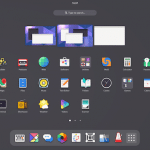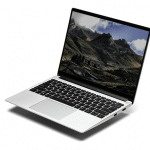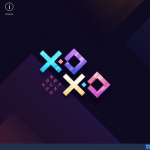Linux kernel found to have a trio of 15-year-old vulnerabilities that could allow root access

Linux-based operating systems are generally recognized as being far more secure than the likes of Windows and macOS -- but that's not to say they're without their flaws. Illustrating precisely this is the discovery of no fewer than three vulnerabilities in the Linux kernel that could be exploited to gain root access to a system.
That researchers from cybersecurity firm GRIMM managed to find so many vulnerabilities in the Linux kernel is one thing, the fact that they have lain there undetected for 15 years is quite another.
System76 launches AMD Ryzen-powered 'Thelio Mira' Ubuntu Linux desktop

System76 started its life as a Linux computer seller only. Essentially, the company would sell re-branded laptops with Ubuntu pre-installed. To provide a class-leading experience, however, System76 also provided top-notch customer service, helping Linux beginners get started with a little hand-holding when needed. This focus on service continues today, and it is largely responsible for the company's success and longevity.
Seeking to better control its own destiny, the company branched out from only being a computer-seller and transformed into a maker too. Its handcrafted Thelio desktops are powerful works of art, comprised of wood, metal, and good ol' fashioned American elbow grease. Yes, these Thelio machines are made in the USA -- Colorado, specifically.
Google works with a Debian developer to make COVID-19 research easier on Linux

The COVID-19 pandemic has made life harder for pretty much everyone. People have lost jobs, businesses have closed, and worst of all, countless people have lost their lives. Thanks to the hard work of scientists, however, we finally have vaccines rolling out and normalcy is on the horizon.
Medical research surrounding COVID-19 isn't over though, as scientists still have plenty of work to do. Olek Wojnar, a developer of the Linux-based Debian operating system, has been working to help these scientists by packaging some software for easy installation on Linux. One of those packages was Google's build software Bazel. Upon finding out about Wojnar's efforts, Google offered to help with the process.
With WSL Hello sudo, you can use Windows Hello in Windows Subsystem for Linux

Microsoft greatly simplified the user login and authentication process with the introduction of Windows Hello. The biometric security system for Windows 10 means laboriously typing out passwords has been replaced with facial or fingerprint recognition.
Taking this idea to the next level is a great open source Rust-based utility called WSL Hello sudo. This is a pluggable authentication module (PAM) that makes it possible to use Windows Hello authentication in Windows Subsystem for Linux.
Linux Mint developers will force updates on users like Microsoft does with Windows 10

We recently shared some very shocking news about Linux Mint users. Sadly, it turned out that users of that operating system were extremely irresponsible regarding updates. You see, Linux Mint developers spilled the beans on this upsetting trend -- many of its users weren't just a little behind in installing updates, but were running unsupported versions for more than a year!
This shows that not all Linux users are responsible, nor are they necessarily more knowledgeable than Windows users regarding computer maintenance. It also highlighted that the Linux Mint developers were doing a poor job in convincing users to update. And now, it seems the Linux Mint developers are taking a page out of Microsoft's playbook by planning to force some updates on its users. Yes, folks, Linux Mint is becoming more like Windows 10.
Ubuntu-based Linux Lite 5.4 RC1 is here to replace Microsoft Windows 10 on your PC

Windows 7 and Windows 10 aren't terrible operating systems. In fact, they are both very good. With that said, the newest version of Windows 10 has many bugs. Unfortunately, since Windows 7 is no longer supported, its users are stuck in a conundrum. They have to decide whether to use an unsupported Windows 7 or upgrade to Windows 10 that is full of telemetry and other "spying" that passes their information to Microsoft's servers. That is a very difficult decision.
Thankfully, there is a better option -- just switch to Linux! Yes, modern Linux-based operating systems will be supported (unlike the now-obsolete Windows 7) and most will run great on aging hardware (unlike Windows 10). Linux Lite is one of the best Linux distributions for Windows-switchers, as it is lightweight, modern, and familiar.
Mageia 8 Linux distro ready for download

I've never seen a kangaroo in person, but I know they exist because I have seen them on the internet. The same goes for Mageia users. Never in my travels have I encountered someone that regularly uses that Linux-based operating system. True, meeting any fellow desktop Linux user in public is rare in and of itself, but when I have, they typically use something more common, such as Ubuntu or Fedora. I have only witnessed Mageia users on the internet.
So, yeah, Mageia is hardly the most popular Linux distribution, but it is fairly well-known -- by people in the Linux community, at least. For fans of that operating system, I have what should be very exciting news; following a fairly lengthy development period, and several pre-release versions, the stable Mageia 8 is finally ready for download!
GNOME 40 beta is here -- the best Linux desktop environment is getting better

There are a lot of great desktop environments for Linux, such as Cinnamon, KDE Plasma, and Xfce to name a few. With that said, only one can be the best, and that is GNOME. If you prefer a different environment, you are simply wrong or ignorant on the subject. You know what? That's fine. As they say, ignorance is bliss, so if you are happy not using GNOME, more power to you.
For those of us superior Linux users that prefer GNOME, it is time to get excited. You see, the GNOME 40 beta is finally here. Yes, the next version of the desktop environment will be forty thanks to a new confusing naming scheme. This version of the DE is most notable for a series of UI changes, such as a horizontal workspace switcher and the movement of the Dash (favorites launcher) to the bottom of he screen (like the dock on macOS).
Framework Laptop is upgradeable, repairable, good for the environment, and Linux-friendly

It used to be, when you bought a computer, you could upgrade or repair parts when needed. Running out of storage? Upgrade the hard disk or solid state drive. Not enough memory? Add some RAM. Laptop battery no longer holding a charge? Just replace it. Over time, however, manufacturers have increasingly turned to soldering in components, making them virtually impossible to upgrade or replace.
Of course, we largely have Apple to blame for this trend, but other manufacturers are guilty too. We also must take a look at ourselves for enabling this customer unfriendly behavior. Hell, I bought a Mac mini recently that can't be upgraded at all. If the SSD, RAM, or other component fails, I will pretty much have to toss it in the trash. So, yes, I am personally guilty of this landfill-filling behavior.
Google funds two Linux kernel developers to focus on security

Google and the Linux Foundation are prioritizing funds to underwrite two full-time maintainers for Linux kernel security development.
Gustavo Silva and Nathan Chancellor will focus on maintaining and improving kernel security and associated initiatives in order to ensure the world's most pervasive open source software project is sustainable for decades to come.
Debian-based Netrunner 21.01 'XOXO' is the perfect Linux alternative to Windows 10

Here at BetaNews, we report on many Linux distribution releases, because, well, there are a lot of them. Not all of these operating systems are great, and only a handful are legitimate replacements for Windows 10. With that said, Microsoft's operating system is very good, so if you are happy with Windows, you should probably just stick with it. Don't switch for the sake of change, folks.
Unfortunately, some people strongly dislike Windows 10, and they are eager to move onto a Linux-based alternative. If that is you, I have some great news. One of the best Windows alternatives, Netrunner, has a new version. The Debian-based operating system, which uses the excellent KDE Plasma desktop environment, now sits at version 21.01 and carries the moniker "XOXO."
Linux Mint users are surprisingly irresponsible regarding updates

Linux users are more knowledgeable regarding computer maintenance than Windows users, right? Maybe. That is certainty up for debate. With that said, Linux user may not be very responsible computer users. Well, Linux Mint users, at least.
You see, in a stunning development, it turns out Linux Mint users are often very behind in installing both operating system and application updates. In other words, Linux Mint users are often running outdated software, which could be no longer supported, or even worse, it could contain exploitable vulnerabilities. For example, a surprisingly high number of these users are running Linux Mint 17.x, which is unsupported since 2019!
Get 'Practical Linux Security Cookbook: Second Edition' ($35.99 value) FREE for a limited time

Over the last few years, system security has gained a lot of momentum and software professionals are focusing heavily on it.
Linux is often treated as a highly secure operating system. However, the reality is that Linux has its share of security flaws, and these security flaws allow attackers to get into your system and modify or even destroy your important data. But there’s no need to panic, since there are various mechanisms by which these flaws can be removed, and this book will help you learn about different types of Linux security to create a more secure Linux system.
OpenMandriva Lx 4.2 Linux distribution now available for PC, Raspberry Pi, and more

As more and more computer users sour on Windows 10, they are increasingly turning to Linux as an alternative. They aren't just choosing traditional desktop Linux distributions like Ubuntu and Manjaro, but Chrome OS too. Yes, folks, Chromebooks run a Linux-based operating system. Make no mistake, Linux is a threat to Microsoft's desktop stranglehold.
Unfortunately, there are way too many Linux distributions nowadays, making it hard for curious Windows users to pick one. My advice to Linux newbies is to start with Ubuntu -- or a variant of it -- such as Mint or Pop!_OS. As you get more comfortable, you can then begin distro-hopping, starting a quest to find the best Linux-based operating system to meet your needs.
Forget pricey Microsoft Windows 10 -- the Ubuntu Linux-based Linspire 10 is cheaper

Windows 10 is actually a really great operating system. The problem? It is actually quite expensive at its normal retail price. Amazon sells Windows 10 Home for a whopping $130! Not to mention, Microsoft's desktop OS is quite resource intensive, making it a bad choice for those with aging hardware. For those with older computers, Linux-based operating systems are often a better option.
While many people associate Linux distributions with "free," the truth is, some can actually cost money. There is nothing wrong with paying for a Linux distro either -- it is a fine way to support the development. One such operating system, Linspire (formerly known as "Lindows") recently hit a major milestone -- version 10. Starting at just $29.99, the Ubuntu-based operating system is far cheaper than the expensive Windows 10.
© 1998-2025 BetaNews, Inc. All Rights Reserved. Privacy Policy - Cookie Policy.